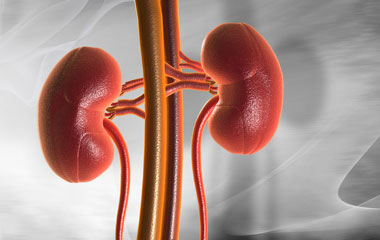
- Remove drugs from the body.
- Balance the body’s fluids.
- Release hormones that regulate blood pressure.
- Produce an active form of vitamin D that promotes strong, healthy bones.
- Control the production of red blood cells.
While the health benefits provided by kidneys are well-known, kidney disease is the ninth leading cause of death in U.S. More than 590,000 people have kidney failure in the US today and more than 30 million Americans have kidney disease, though most don’t know it. Many people don’t find out they have kidney disease until their kidneys are permanently damaged, which is why you should get tested early.
The National Kidney Foundation is the leading organization in the U.S. dedicated to the awareness, prevention and treatment of kidney disease. National Kidney Month is the perfect time to participate in one of the free screenings that show up all over the country.
Most people with early kidney diseases how no symptoms, which is why early testing is critical. By the time symptoms appear, the disease may be advanced, and symptoms can be misleading. Kidney diseases are silent killers, which will largely affect your quality of life. Therefore, here are 7 signs that may indicate kidney disease:
- Fatigue, weakness
- Difficult, painful urination and increased need to urinate (especially at night)
- Foamy urine
- Pink, dark urine (blood in urine)
- Increased thirst
- Puffy eyes
- Swollen face, hands, abdomen, ankles, feet
If you have any of these symptoms get a blood and urine test. Two tests done to identify kidney disease are:
- Albumin-To-Creatinine Ratio: This test estimates the amount of type of protein and albumin excreted in urine. Three positive results over three months or more is a sign of kidney disease.
- Glomerular Filtration Rate (GFR): This blood test tells how well the kidneys are working to remove wastes from the blood.
A person with chronic kidney disease should do following things:
- Lower high blood pressure
- Keep blood-sugar levels under control if diabetic
- Reduce salt intake
- Avoid NSAIDs, a type of painkillers
To prevent kidney disease:
- Exercise regularly
- Control weight
- Eat healthy
- Quit smoking
- Drink plenty of water
- Monitor cholesterol levels
- Drink alcohol only in moderation
- Get an annual physical
Make the right decision – get tested because early detection and treatment can slow or prevent the progression of kidney disease.